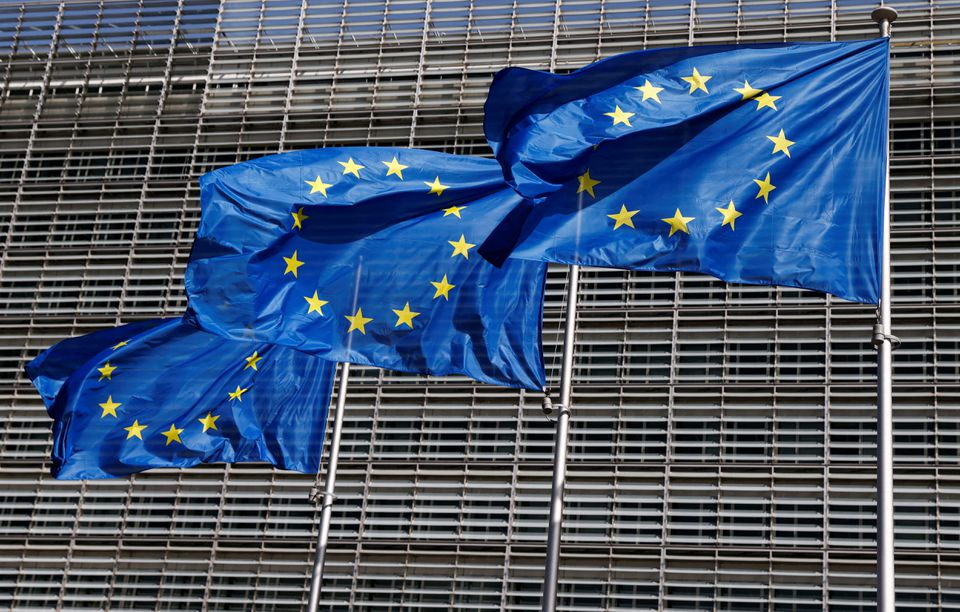BRUSSELS, Oct 16 (Reuters) – European Union countries backed tougher CO2 emissions targets for heavy goods vehicles on Monday, requiring new trucks to slash their emissions by 90% by 2040, but they delayed a planned target to drive a switch to electric city buses.
EU countries’ climate ministers agreed to support a proposed law on the issue, which would also require new trucks sold in the EU to have 45% less CO2 emissions by 2030 and 65% by 2035, compared with 2019 levels.
They delayed until 2035 a proposed target for all new city buses to have zero CO2 emissions, after countries including France and Estonia said a 2030 deadline proposed by the European Commission was unrealistic.
The proposed law, which EU countries will now negotiate on with the European Parliament, is aimed at triggering investment to reduce the heavy duty vehicle sector’s CO2 footprint and expand electric vehicle production, which some manufacturers have already committed to do.
Daimler Truck, for example, has pledged that its new trucks will be CO2-neutral from 2039 in Europe, the U.S. and Japan.
Most trucks in Europe currently run on diesel.
Italy had sought a bigger role for combustion engine vehicles running on low-carbon fuels, which could have potentially reduced the amount of electric trucks manufacturers would have to sell to comply with the target.
Countries including Denmark, the Netherlands and Portugal opposed that move, which they said would weaken the CO2-cutting targets. Countries agreed only to consider the idea when the law is reviewed in 2028.
The EU has already passed a law setting a 2035 deadline for new cars to be CO2 emissions-free.
EU lawmakers have yet to agree their negotiating position. Some have said anything less than a 100% CO2 cut by 2040 would mean CO2-emitting trucks are still on the road in 2050, threatening the EU’s long-term climate goal.
Reporting by Kate Abnett; Editing by Hugh Lawson











